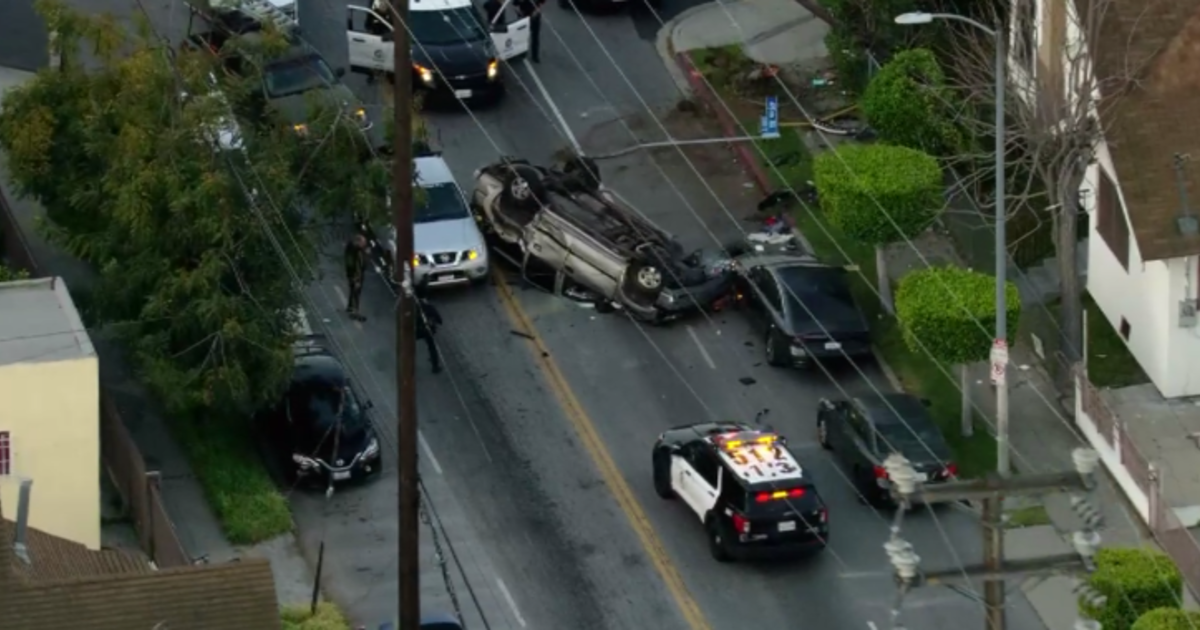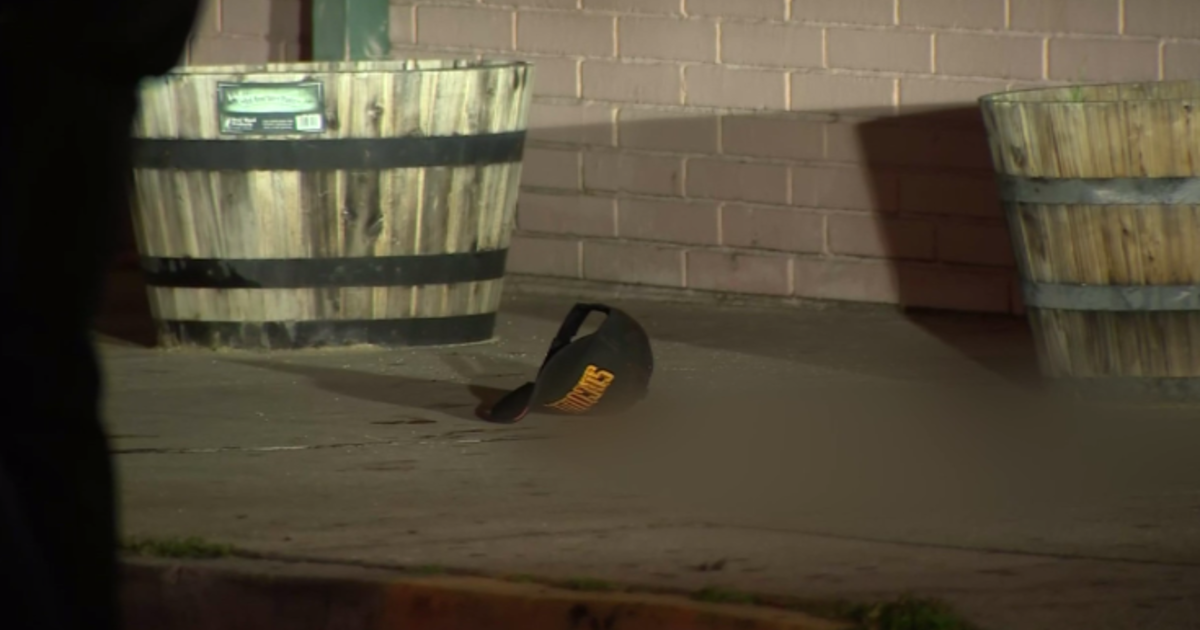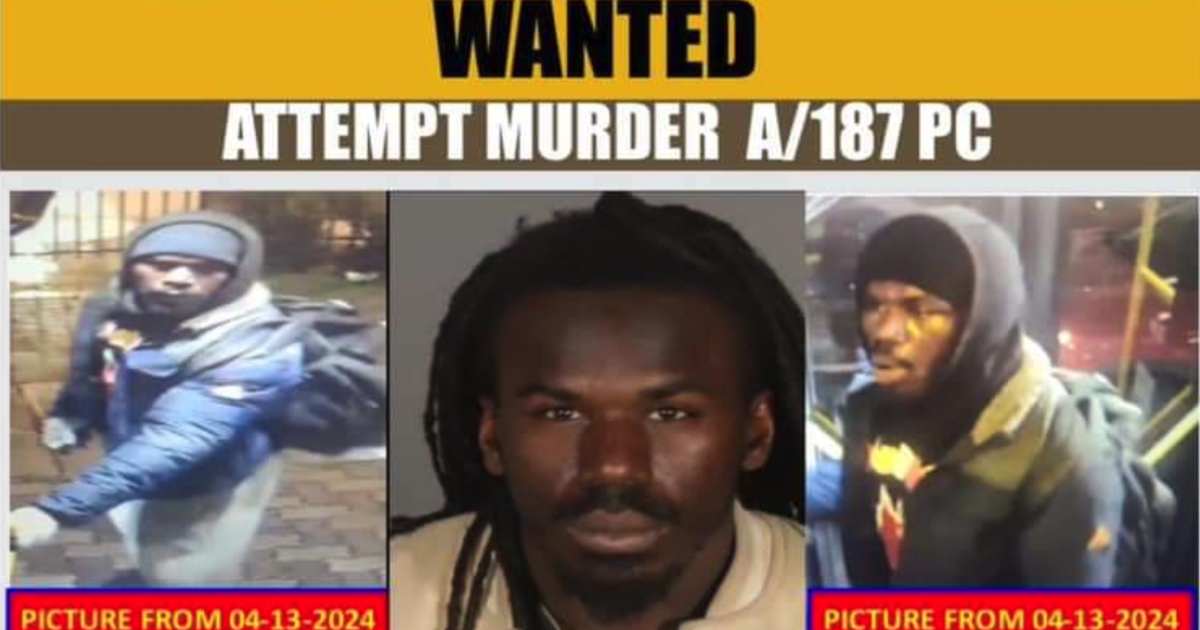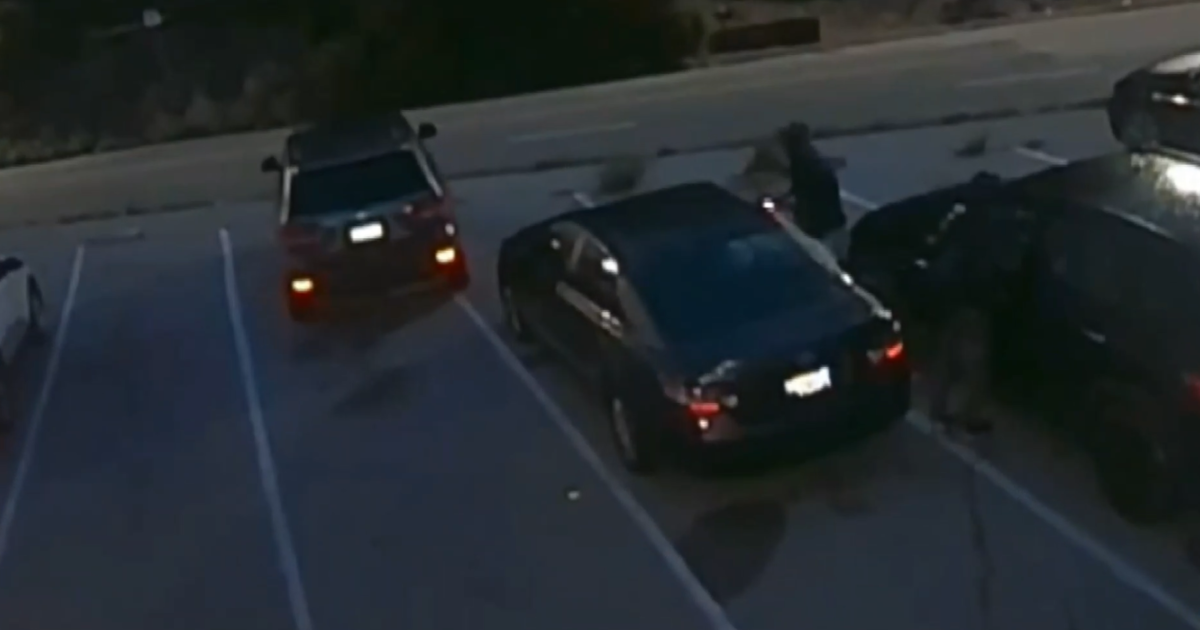Police: 1 Suspect Confessed To Killing 5 Women
SANTA ANA (CBS/AP) — Steven Dean Gordon spent hours methodically telling a police detective how he and an accomplice randomly chose five women to rape, strangle and throw into trash bins.
He grew agitated when the detective failed to ask about the women in the order in which they were killed, according to a grand jury transcript unsealed Monday.
During the 13 1/2 hours of interrogation, Gordon told Anaheim police Detective Julissa Trapp that there was one victim that she didn't know about. He also referred to a picture in a local newspaper article about a string of missing women, Trapp told the grand jury.
"He would actually stop me and tell me he wanted to talk about them in order," Trapp said. "I mean, he had actually rearranged the photographs I had shown him and put them in order."
The grand jury returned four murder and rape indictments against Gordon, 45, and co-defendant Frank Cano, 28. The fifth victim described by Gordon has never been identified.
The crimes, carried out in Orange County during a five-month period ending in March, attracted widespread attention when it was revealed that the suspects, both convicted sex offenders who were homeless, were wearing electronic tracking anklets.
Gordon at first sought to protect Cano in his account of the crimes. But when Trapp told Gordon that Cano didn't want to talk to him, Gordon seemed upset and changed his story to implicate Cano in much greater detail, Trapp said.
He told police he picked up the women in his car while Cano hid in the back seat and overpowered them when they got in. The women were raped behind an Anaheim paint and body shop where Gordon and Cano camped.
Cano strangled the women and Gordon punched them in the stomach "to get the air out faster," Trapp told the grand jury. At one point, he grew enraged when one of the victims noticed his electronic anklet, she said.
"He ultimately made a statement that once he started, he couldn't stop," Trapp said.
Gordon and Cano have pleaded not guilty. Cano's attorney, Houman Fakhimi, and Gordon's attorney, Denise Gragg, did not return calls and emails.
Gordon told Trapp that he didn't want to kill Jarrae Nykkole Estepp, the last woman to die, because she was beautiful, but when she refused to stay with them, he decided that she had to be killed, too.
She fought back and sprayed them with mace.
Even then, Gordon said, he tried to kiss her after she was unconscious and when Cano was looking away.
"This infuriated Cano and he told me that Cano proceeded to stomp on her neck several times to kill her, and then they discarded her in the trash can," Trapp told the grand jury.
Estepp's naked body was found on a conveyor belt at a recycling plant — a discovery that would lead police to link her death to the disappearance of three other women in nearby Santa Ana and ultimately help them solve all four cases.
Police used a tattoo of Estepp's mother's name on the back of her neck to identify her. Fingerprints and addresses on trash found with Estepp's body allowed police to pinpoint the trash bin her body had been in.
Detectives then searched a database of sex offenders wearing tracking devices and found that Cano had been at the locations where all four women disappeared at the times they vanished and also near the trash bin shortly thereafter.
They collected Cano's DNA from a water bottle and discarded gum, and honed in on Gordon as a second suspect after a search of Cano's cellphone records showed he texted with Gordon constantly.
The night Estepp died, for example, he texted Cano to say he "can't hurt this cat" and "cat is beautiful," referring to Estepp. "This is the best one yet," according to a text message from Gordon's phone to Cano's.
DNA samples from Estepp's body matched Cano's and Gordon's genetic material, authorities said.
Police believe Cano and Gordon have known each other since at least 2010, when Cano cut off his GPS device and fled to Alabama, where he was arrested with Gordon.
Two years later, in 2012, they again snipped off their monitoring devices and boarded a Greyhound bus to Las Vegas using fake names before being arrested two weeks later by federal agents.
Cano and Gordon were registered sex offenders after being convicted in separate cases of lewd and lascivious acts with a child under 14. Gordon was convicted in 1992 and also has a 2002 kidnapping conviction, while Cano's conviction dates back to 2008.
Police searched extensively at two landfills for the bodies of the other women.
According to police, the fifth woman went missing around Valentine's Day near Beach and Ball roads, near wear Estepp was last seen.
"We believe that she is an African-American female, in her early 20s, very small stature, kind of petite. She does have tattoos but we don't know where. We did receive some information that she may have had ties with the Compton area," Anaheim Police Dept. Lt. Bob Dunn told CBS2.
At least two of the women's bodies were wrapped in garbage bags.
The mother of victim Martha Anaya, 28, told CBS2 she only hopes her daughter's body will be found.
"I'm so sad," she said.
(TM and © Copyright 2014 CBS Local Media, a division of CBS Radio Inc. and its relevant subsidiaries. CBS RADIO and EYE Logo TM and Copyright 2014 CBS Broadcasting Inc. Used under license. All Rights Reserved. This material may not be published, broadcast, rewritten, or redistributed. The Associated Press contributed to this report.)
RELATED STORIES:
Sex Offenders Plead Not Guilty To Serial Killings
Men Wearing GPS Devices Indicted In Connection With 3 Killings
Accused Serial Killers Reportedly Fled State While Wearing GPS Devices More Than Once



